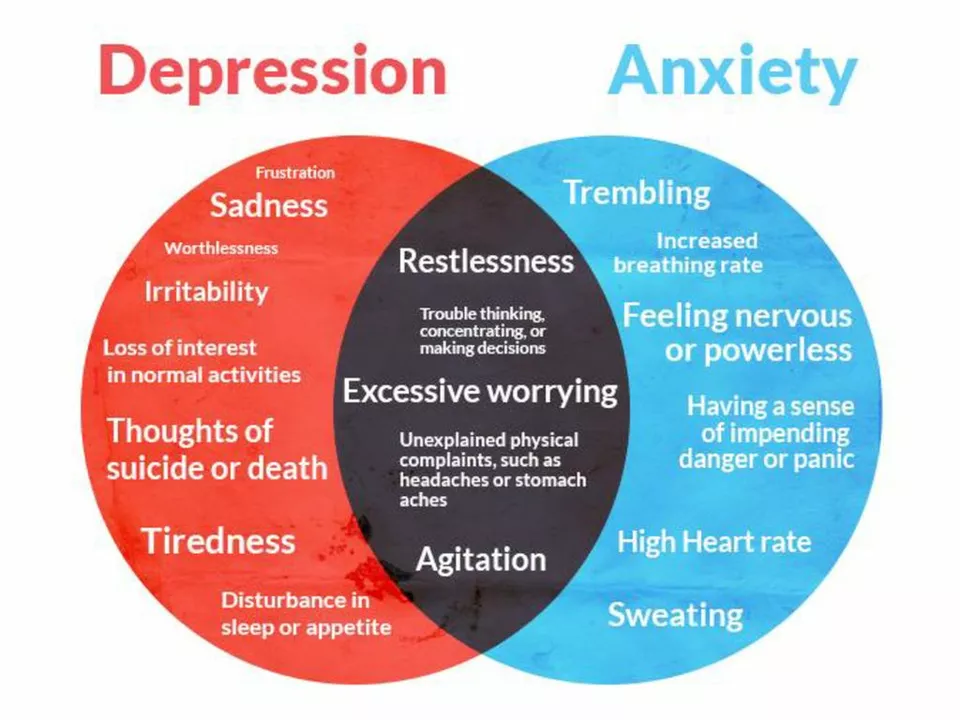Performance anxiety: how to spot it and what actually helps
Ever felt your heart race, hands shake, or your mind go blank right before a speech, meeting, or intimate moment? That sudden, physical panic is performance anxiety — a common reaction when your brain sees evaluation as a threat. The good news: simple, daily actions and a few techniques before the event can cut that panic in half.
Fast, practical steps you can use right now
1) Slow your breath. Try 4-4-6 breathing: inhale 4 seconds, hold 4, exhale 6. It lowers heart rate and clears foggy thinking.
2) Run a short rehearsal. Walk through the first 60 seconds of your performance or talk. That little win calms your brain and gives momentum.
3) Ground your body. Press your feet into the floor, feel the weight in your legs, or tense and release major muscle groups for 30 seconds. Grounding reduces the ‘floating’ panic feeling.
4) Cut stimulants before big events. Too much coffee or energy drinks make anxiety worse. Swap to water or a small decaf drink if you need a ritual.
5) Use a focused cue. Pick a short phrase (“steady,” “one step”) or a physical anchor (a wrist touch) to bring you back when nerves spike.
Longer-term habits that change how you react
Practice exposure in tiny steps. If public speaking scares you, start with a one-minute comment in a small group, then build. Repeated safe practice rewires fear circuits.
Build a calming routine. Sleep, light exercise, and a short mindfulness practice each morning lower baseline anxiety. Even 10 minutes of brisk walking three times a week helps your brain handle stress better.
Cognitive techniques help too: write down your worst fear about the performance, then challenge it with evidence. Often the imagined disaster is far less likely than the anxious mind assumes.
Therapy options work well. Cognitive-behavioral therapy (CBT) and exposure therapy have strong evidence for easing performance anxiety. If anxiety is intense or tied to deeper mood issues, a professional can recommend therapy or medication options.
Medication can be a smart short-term tool. People sometimes use a single dose of a beta-blocker (like propranolol) for stage fright, or a short course of anxiety meds under a doctor’s guidance. Don’t self-medicate — talk to your clinician about risks and interactions, especially if you take other prescriptions.
Performance anxiety overlaps with other issues like depression or social anxiety. If low mood, panic attacks, or ongoing worry are part of your life, check out related guides on this site such as “Symptoms of Depression” and “Wellbutrin: Uses, Side Effects, and Practical Tips” to learn more about mood support and treatment options.
Small, consistent steps beat single dramatic fixes. Start with breathing and a short rehearsal, add a routine that improves sleep and movement, and ask a clinician about therapy or medication if you’re stuck. You don’t have to perform perfectly — just get comfortable enough to show up and do your best.
Vardenafil and Psychological Factors: How It Can Help Overcome Performance Anxiety
In my recent blog post, I discussed the connection between Vardenafil and psychological factors, particularly focusing on how it can help overcome performance anxiety. Vardenafil, a medication commonly used to treat erectile dysfunction, has been shown to not only improve physical symptoms, but also address the mental aspects that contribute to performance anxiety. By promoting relaxation and increasing blood flow, Vardenafil can help alleviate the stress and fear that often accompany sexual performance issues. Furthermore, the positive effects of the medication can lead to a boost in confidence and a more satisfying sexual experience for both partners. Overall, Vardenafil presents a valuable solution for those struggling with performance anxiety, improving both physical and psychological factors.






